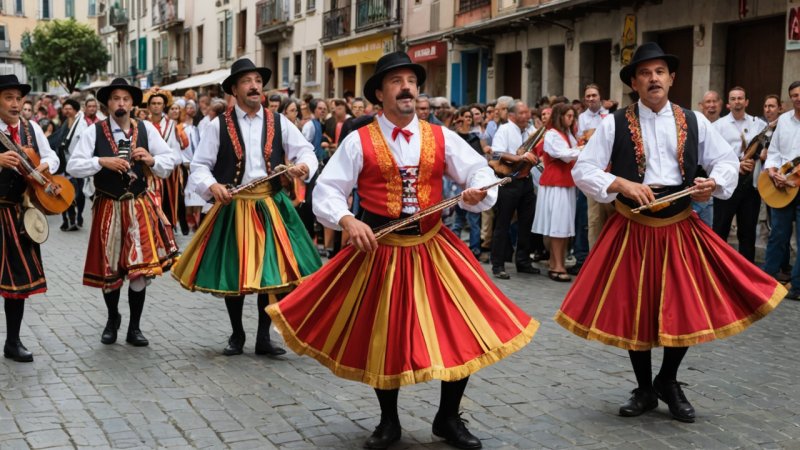The Basque Country, a unique region straddling the border of Spain and France, has a rich cultural heritage that is deeply intertwined with its music. This article explores the significance of music in shaping the cultural identity of the Basque people, addressing some common questions about this vibrant aspect of their culture.
What types of music are traditionally associated with the Basque people?
The Basque people have a variety of traditional musical styles. Some of the most prominent include:
- Txalaparta: A traditional percussion instrument made of wooden planks, often played in pairs.
- Pandero: A type of frame drum that is integral to many folk songs and dances.
- Folk songs: Often sung in the Basque language, these songs reflect the everyday life and history of the Basque people.
How does music reflect the identity of the Basque people?
Music is a powerful medium for expressing cultural identity. For the Basque people, music serves to:
- Celebrate their distinct language, Euskara, and regional pride.
- Preserve historical narratives and folklore through song.
- Foster community bonds during festivals and gatherings.
What role do festivals play in Basque music culture?
Festivals are a cornerstone of Basque music culture. They provide a platform for:
- Showcasing traditional music and dance.
- Bringing together locals and visitors to share in cultural experiences.
- Encouraging the participation of younger generations in preserving their musical heritage.
Are there contemporary Basque musicians that blend traditional and modern styles?
Yes, many contemporary Basque musicians incorporate traditional elements into modern genres. This fusion can be seen in:
- Rock: Bands like Ken Zazpi and Berri Txarrak have gained popularity while maintaining Basque themes.
- Pop: Artists such as Maider Zabalegi create catchy tunes that resonate with both local and international audiences.
- Electronic music: The Basque electronic scene often integrates traditional sounds with contemporary beats.
How has globalization impacted Basque music?
Globalization has had both positive and negative effects on Basque music. On one hand, it has:
- Increased exposure to international music trends, allowing for creative collaborations.
- Facilitated the digital distribution of Basque music, reaching wider audiences.
On the other hand, some fear that:
- Traditional music may become diluted or overshadowed by global pop culture.
- Young people may prioritize mainstream music over their cultural heritage.
What resources are available for those interested in learning more about Basque music?
For anyone interested in exploring Basque music further, there are several resources available:
- Local cultural centers: Many Basque cities have cultural institutions that host workshops and performances.
- Online platforms: Websites and social media pages dedicated to Basque music often feature playlists and artist interviews.
- Documentaries and films: Visual media can provide a deeper understanding of the cultural significance of music in the Basque community.
In conclusion, music plays a vital role in the cultural identity of the Basque people, serving as both a reflection of their history and a means of connection within the community. As globalization continues to influence cultural expressions, the Basque music scene remains dynamic, balancing tradition with innovation. Whether through traditional festivals or contemporary music, the essence of Basque culture is beautifully encapsulated in its sounds.






